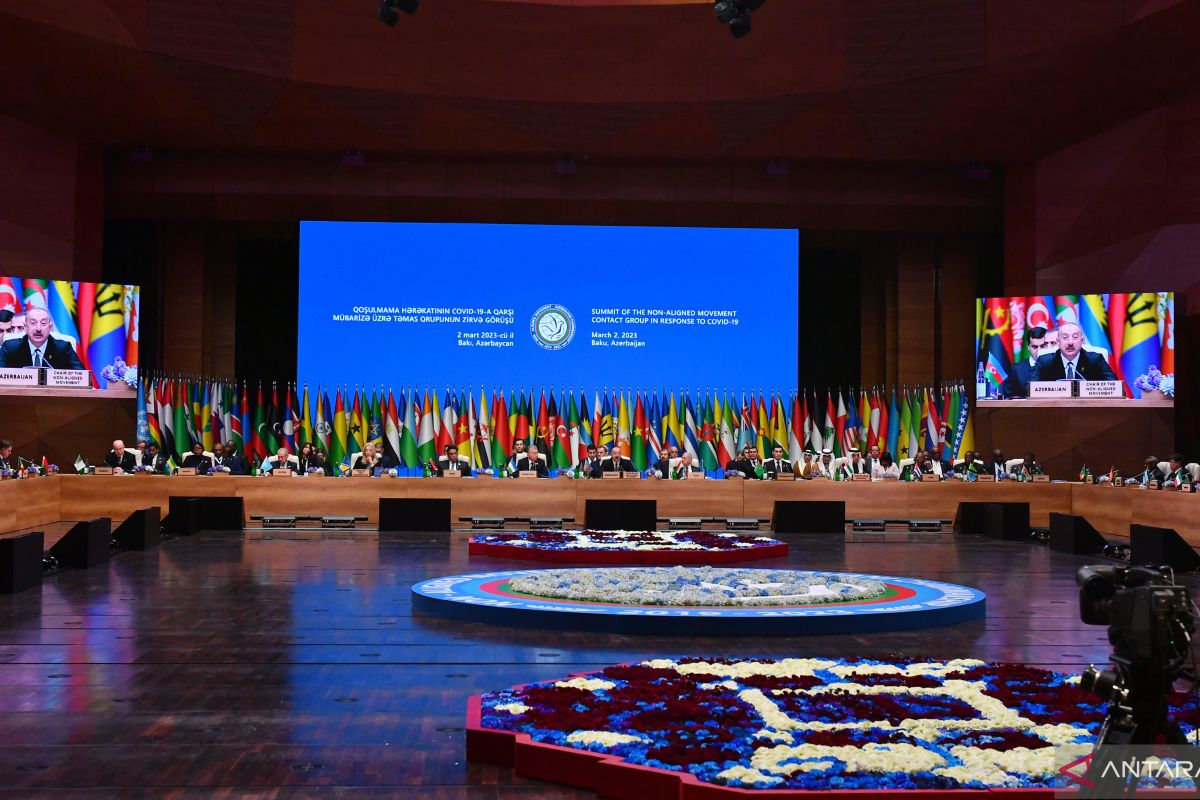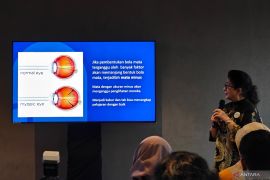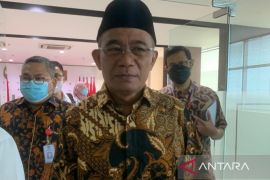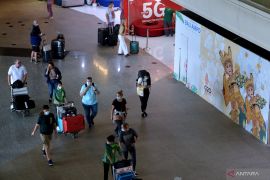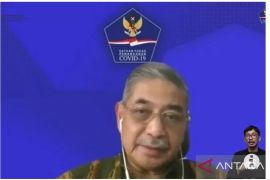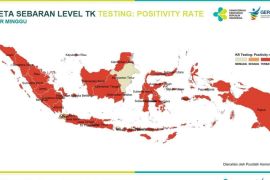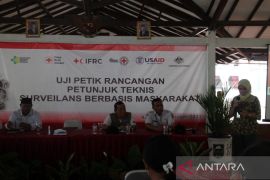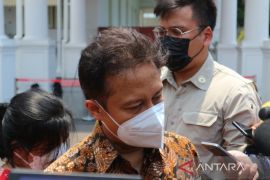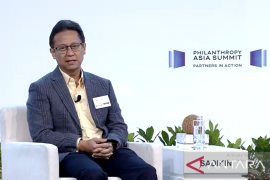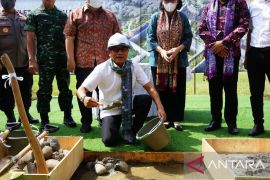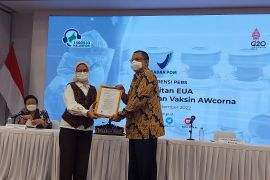According to the World Health Organization (WHO) data as of September 1, 2022, the pandemic has claimed around 6.5 million lives, infected over 600 million people, and overturned the livelihoods of even more all over the world.
It could result in the worst global recession since the Great Depression, as it exposed vulnerabilities and exacerbated inequalities within and between developing and developed countries, hitting the poorest and most vulnerable people particularly hard.
In addition to its negative effects on human health and causing great losses to the population, the pandemic also significantly impacted economic life and the labor market.
The lockdown and other health-related restrictive measures brought about a slowdown in business activity.
According to data of the International Labor Organization (ILO), 33 million people fell under cuts due to the pandemic.
The pandemic has also exposed healthcare system weaknesses at the global level. It has revealed that a well-functioning health system must be well-equipped and needs the capacity to control and address global public health threats.
COVID-19 has been the cruelest reminder that no health system survives unless it has strong primary health care, nor will it serve much unless it is fully digitalized.
Despite the fact that expanding vaccination rates and increasing adaptivity of the global population to new realities give a glimpse of hope for the post-COVID period, serious challenges remain.
Unfair distribution of vaccines between developed and developing countries continues to be one of the major impediments in curbing the effects of the pandemic as early as possible.
The WHO data as of September 1, 2022, shows that more than 12.5 billion doses of COVID-19 vaccines had been administered globally, with absolute majority of them being in high and upper-middle income countries.
It is also of particular concern that some countries refuse entry to people, who have received a vaccine, included in the WHO Emergency Use Listing, but not been approved by their national regulators.
This creates confusion and discrimination, with some countries denying using certain vaccines over concerns that their citizens might be declined entry to other countries.
All the immediate and long-term challenges brought by the pandemic necessitate new mechanisms supported by high-level political engagement, which would provide a much-needed overarching framework for global cooperation and enhancing solidarity among nations.
Since the outbreak of the pandemic, the Non-Aligned Movement (NAM) has been at the center of multilateral efforts in eliminating the negative consequences of COVID-19, which has been widely recognized by the international community. The Movement also needs to maintain its leading role in preparation for the post-pandemic period.
Proceeding from this understanding, President of the Republic of Azerbaijan and Chair of the NAM Ilham Aliyev, during his statement at the summit-level meeting of the Non-Aligned Movement (NAM) Contact Group to discuss the COVID-19 pandemic and post-pandemic global recovery, stated that Azerbaijan took the initiative to call for global efforts for fighting COVID-19.
"As a chair of the NAM, our aim is to defend justice and international law. Right after the beginning of the pandemic, it was NAM that took the initiative to mobilize global efforts to fight COVID-19," he stated.
NAM's leadership in mobilizing efforts to fight the pandemic once again demonstrated the influence and responsibility of the movement, he added.
"We initiated the NAM Online Summit at the head of state and government level in May 2020. The summit decided to form a Non-Aligned Movement Task Force to work out a database. The World Health Organization (WHO) uses this database as a reference point to identify the needs of NAM member states in overcoming the pandemic," he remarked.
President Aliyev had also suggested convening a UN General Assembly Special Session at the leaders’ level. The proposal had gained huge support from UN member states.
The special session was held in December 2020 and was attended by over 70 heads of state and governments. It stressed the need for increased international solidarity and acknowledged NAM's leadership in the fight against the coronavirus.
“We considered ‘vaccine nationalism’ pursued by some wealthy countries, among others, as a serious impediment to countering the pandemic. Subsequently, NAM initiated two resolutions for equitable and universal access to vaccines for all countries adopted in the UN Human Rights Council and the UN General Assembly in 2021,” Aliyev stated.
He said that Azerbaijan provided coronavirus-related financial and humanitarian support to more than 80 countries, most of which were from the NAM family, either through bilateral channels or the WHO.
Azerbaijan has pledged US$1 million (about Rp15.2 billion) to support post-pandemic recovery in Africa and small island developing countries.
“I declare two global calls to support the post-pandemic recovery of Africa and small island developing states. It is my pleasure to announce that Azerbaijan, as the first donor, is allocating one million US dollars for both global calls,” Azerbaijan President Ilham Aliyev stated.
Azerbaijan will continue to provide financial and humanitarian assistance to NAM countries in need, he remarked at the summit-level meeting of the Non-Aligned Movement (NAM) Contact Group in Baku on Thursday.
“I believe that NAM members and other members of the international community will support Azerbaijan’s initiative and will follow us in supporting the countries in need on their path to post-pandemic recovery,” he remarked.
The pandemic has had a negative impact on the implementation of the 2030 Sustainable Development Goals.
Global efforts must be strengthened to pursue the 2030 Sustainable Development Goals. To this end, he highlighted the importance of establishing a UN High-Level Panel on Global Recovery from COVID-19.
The panel could elaborate on recommendations on global measures for the post-pandemic period, he added.
“I invite all NAM members to support this initiative," he remarked.
According to Aliyev, NAM’s leadership in mobilizing global efforts to fight the pandemic has once more demonstrated the movement’s influence and responsibility.
Azerbaijan has provided coronavirus-related financial and humanitarian support to more than 80 countries, most of whom are from the NAM family, either through bilateral channels or the World Health Organization, he remarked.
Solidarity
President of the 77th Session of the United Nations General Assembly Csaba Korosi stated that the ravage of COVID has been the greatest global health crisis in a century.
If the pandemic taught the world one thing, it is that no one is safe until all nations are safe. Because closing our borders and taking individual measures were not enough.
Therefore, solidarity between countries in the world is the only way out of the COVID-19 pandemic.
“It quickly transpired that the only way out of the pandemic was through solidarity, not only within our borders, but across them, too,” he remarked.
The Bandung Principles that underline such solidarity are as relevant today as they were when this group was founded in 1961.
“Thanks to the united global push launched by the Non-Aligned Movement, we saw how far joint efforts can bring us in catalyzing the development and production of COVID-19 tests, treatments, and vaccines all over the globe. It was a convincing display of NAM’s influence,” he stated.
The Human Rights Council’s adoption, at the initiative of Azerbaijan, of the resolution on equitable, timely, and universal access to vaccines is testament to the power of mutual support.
Hence, when the world needed it the most, NAM quickly galvanized efforts to address the crisis, calling for increased global solidarity to overcome the pandemic and its impacts.
"While we are still reeling from the pandemic, scientists predict about a 25-percent chance of another disease that will be at least as deadly and widespread as COVID within 10 years," he said.
Given this opportunity, he accentuated the need for transformative solutions that will make the world safer, more equal, and more sustainable.
“When we emerge from the dark shadow of the pandemic, what if we adopt a “new normal”? One is rooted in science, innovation, technology and digitization,” Korosi stated.
This new, science-based “normal” is the key to building more inclusive societies with more resilient economies.
"The gradual taming of COVID has given us an opportunity to direct our pandemic recovery towards an environmentally sound and socially just transition,"he said.
As President of the General Assembly, Korosi encouraged member states to employ science-based evidence to inform all their decisions – whether relating to water, climate, food, energy, or biodiversity.
Kuwait's Foreign Minister Sheikh Salem Abdullah Al-Sabah also called for innovative solutions to deal with the economic impact that is currently sweeping the world.
Related news: Azerbaijan pledges US$1 million to support post-pandemic recovery
Related news: NAM must participate in reshaping new world order: Azerbaijan
Editor: Rahmad Nasution
Copyright © ANTARA 2023
